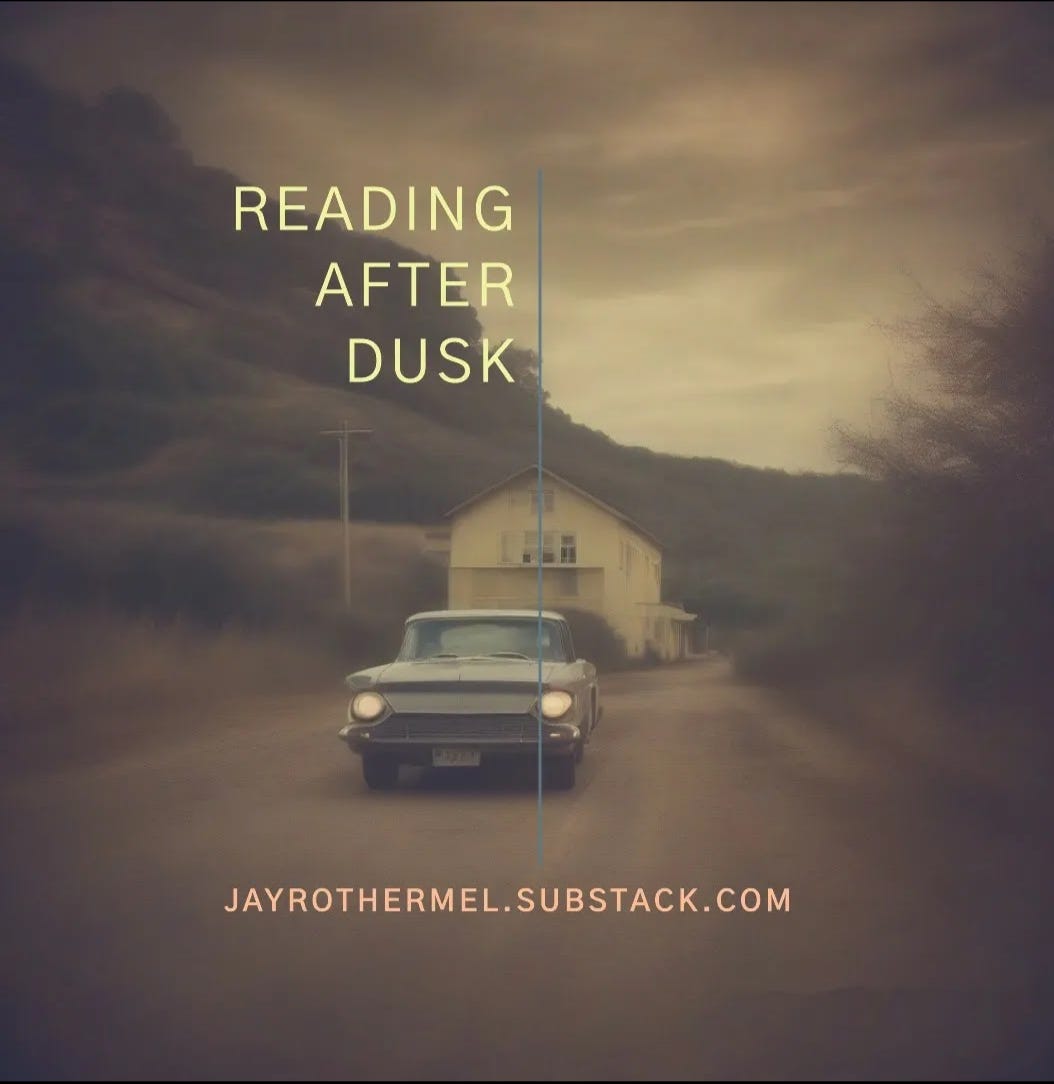White Fang (1906) by Jack London is only marginally a horror novel, but it can be read as an extended exercise in the uncanny and the sublime.
The book follows the life of the eponymous wolf/dog, from his birth in the wild to eventual domestication on a Californian ranch. The first half of the novel deals extensively with the harsh brutality of nature. This “cosmic horror” is vividly portrayed in scenes such as the starvation of White Fang’s siblings and sisters, and the graphic depiction of animals being killed and eaten. The dog’s point of view effectively conveys a world in which only the strong survive.
The second half of the novel shifts the focus from the horror of nature to the potential horror of man.
White Fang is captured and brutally mistreated by a man named “Beauty” Smith. Smith derives pleasure from tormenting White Fang, and also uses him in dog fights for profit. The dog becomes a vicious and effective killer, but is finally rescued by a kind man, Weedon Scott.
The remainder of the novel recounts White Fang’s gradual adjustment to domesticity, and his growing affection for Scott. In the final section of the book, White Fang displays courage and loyalty in protecting Scott’s family from a murderous escaped convict.
Is White Fang a horror novel?
The harshness of the natural world is portrayed as horrific.
The dog’s battles for survival are graphic and brutal.
The character of “Beauty” Smith is a study in human cruelty.
The depiction of White Fang’s fighting prowess is frequently terrifying.
The episodes are interspersed with imagery that is both uncanny and sublime. For example: “A vast silence reigned over the land. The land itself was desolation, lifeless, without movement, so lone and cold that the spirit of it was not even that of sadness. There was a hint in it of laughter, but of a laughter more terrible than any sadness—a laughter that was mirthless as the smile of the sphinx, a laughter cold as the frost and partaking of the grimness of infallibility.”
Five excerpts as examples of uncanny and sublime horror in White Fang:
A vast silence reigned over the land. The land itself was a desolation, lifeless, without movement, so lone and cold that the spirit of it was not even that of sadness. There was a hint in it of laughter, but of a laughter more terrible than any sadness—a laughter that was mirthless as the smile of the sphinx, a laughter cold as the frost and partaking of the grimness of infallibility. It was the masterful and incommunicable wisdom of eternity laughing at the futility of life and the effort of life. It was the Wild, the savage, frozen-hearted Northland Wild.
They travelled on without speech, saving their breath for the work of their bodies. On every side was the silence, pressing upon them with a tangible presence. It affected their minds as the many atmospheres of deep water affect the body of the diver. It crushed them with the weight of unending vastness and unalterable decree. It crushed them into the remotest recesses of their own minds, pressing out of them, like juices from the grape all the false ardours and exaltations and undue self-values of the human soul, until they perceived themselves finite and small, specks and motes, moving with weak cunning and little wisdom amidst the play and interplay of the great blind elements and forces.
An hour went by, and a second hour. The pale light of the short sunless day was beginning to fade, when a faint far cry arose on the still air. It soared upward with a swift rush, till it reached its topmost note, where it persisted, palpitant and tense, and then slowly died away. It might have been a lost soul wailing, had it not been invested with a certain sad fierceness and hungry eagerness.
It was the she-wolf who had first caught the sound of men's voices and the whining of the sled-dogs; and it was the she-wolf who was the first to spring away from the cornered man in his circle of dying flame.
With the bursting open of the door, the noise of their howling had increased tremendously. This howling now bothered him. His dream was merging into something else—he knew not what; but through it all, following him, persisted the howling.
Jay
1 April 2025





